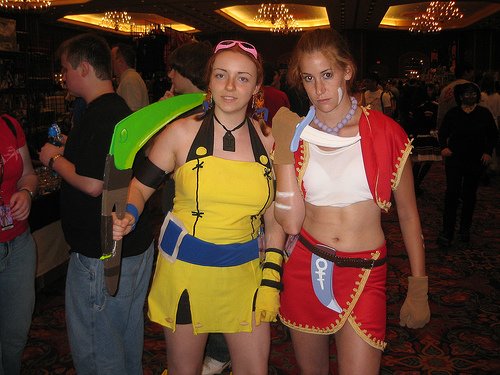I’ve always been impressed with Japan’s dedication to education, the great amount of national resources that are put into teaching young people. I remember my very first day in Japan, a Saturday, and the kids of the family I was staying with got their school backpacks on and dutifully trotted off to school. I was confused — school on Saturday? Yes, Japanese students did go to school (a half day, typically) on Saturdays. This is in addition to the after-hours schools, called juku, that most students attend to help them keep up with their studies (both of my elementary school-age kids attend juku schools now). Over the past fifteen years Japan’s educators decided to let up on the kids, abolishing Saturday school attendance and adopting a policy of yutori kyoiku (translatable as “unhurried education”) which aims to teach Japan’s young people without placing so much pressure on them, leaving more free time for friends, outings with the family, and so on. The goal is laudable, but in reality, Japan’s educational performance compared to other countries in Asia has taken a sharp dive, especially in areas like science and math, and now many are reexamining the relaxed educational goals. I doubt we’ll see a return to Saturday school attendance, but it’s important for a country like Japan with few natural resources to maintain its edge when it comes to educating its people.
Just as America has always had the Protestant Work Ethic to serve as a model for what hardworking people should aspire to, Japan has always valued kinben (keen-BEN), diligence and hard work, as an excellent trait for a person to adopt. By and large, this diligence is usually measured in terms of time rather than raw effort. Doing an hour or two of overtime each day is probably the norm for most Japanese companies, where employees show their hard work to their colleagues in a unit that everyone can easily recognize, time. The highest point of evolution for the concept of kinben is the tetsuya, the all-nighter, working so hard that you work all night long to finish your important project. If an employee in Japan works all night on a project, he will probably gain a lot of respect from his boss and coworkers.
Ask any gaijin living in Japan about dentists here, and you’ll be sure to hear some complaints. By and large, the dental and medical world in Japan is quite advanced, but sometimes you see some things that give you pause. I knew a dentist who sterilized his instruments over an open flame, a giant candle that was burning while he was working on my teeth, and a friend had a dentist use a normal box cutter to drain an infection in his mouth, in lieu of a medical scalpel. These experiences are worrying, but the biggest problem with dentists in Japan is that it can take dozens of visits to complete routine dental work. Last year I had some dental work done that managed to take a full 18 months of regular visits to complete. I believe Japan’s dentists take so long to work on teeth because of the way insurance is structured here — they’re only allowed to charge a certain amount to the system each day, so they spread it out as much as they can. It’s horribly inefficient, but then, it’s sad to say that inefficiency is an industry unto itself, which you can see in many areas, including parking attendants who direct you to parking spaces you could have found on your own, NHK employees who go around to every house in the neighborhood each month to manually collect the 2000 yen NHK fee, and so on.
If you’re in the Dallas area, we hope you’ll be attending A-Kon, one of the most vibrant and enjoyable anime conventions that has ever been. With an amazing 17 year history, you can experience a lifetime of fun compressed into three very enjoyable days of cosplay, anime and Japanese popular culture. The con is from June 9-11 this year and you can see more information on it here
Right before A-Kon I’ll be at another interesting place: the Sex in Video Games conference in San Francisco, where I’ll be speaking at one of the panels on Thursday, discussing Japan’s unique bishoujo games, which we’ve been involved with since the beginning. If you’ll be in the neighborhood, we hope see you at the conference, which will really be interesting. For information, see this page.
At J-List, we bring you our amazing Japanese T-shirts with original messages in kanji, which are aesthetically beautifully and cool to wear. We have a new T-shirt just for the girls today. which is great for anyone with a unique interest in Japan that they’re proud of. The shirt says, “I like what I like, so get off my back!” (alternate translation, “I like what I like, and there’s nothing I can do about it”), which is a slogan from a yaoi manga that we liked the sound of, so we put it on a T-shirt. A great design in American Apparel’s “Vintage Soft” style, this is a great new offering for girls who are into some aspect of Japan that others may not be able to understand. On the site now, and really cute!















